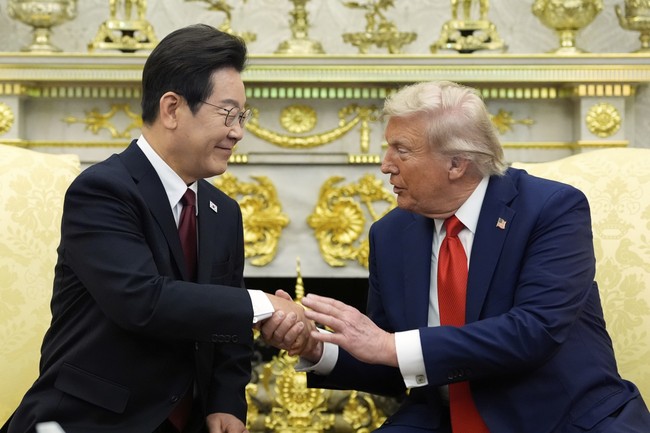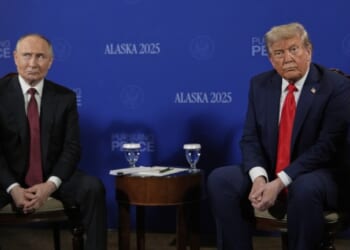
The Trump administration has an opportunity to leverage its tariff policy to force market reform on Asian nations – both allies and adversaries. When the President travels to Asia for trade talks with China and to attend the Southeast Asian Nations summit in Malaysia, he needs to communicate to the government of South Korea that any strengthening of the traditional alliance between the two countries hinges on the respect for the rule of law. Right now, South Korea has some challenges in that particular area.
President Donald Trump’s trip to South Korea to meet with the Chinese President Xi for trade negotiations is one stop on meetings with several Asian nations for the purposes of lowering trade barriers and strengthening economic ties with the United States. The AP reported on Oct. 20, 2025, “Trump’s approach to Asia has focused on using tariffs to realign what he describes as unfair trade practices, unnerving countries that depend on the United States as the world’s largest market for exports. There’s also anxiety about Trump’s meeting with Xi, and the potential that a feud between the two leaders could send the international economy into a tailspin.” President Trump’s clear focus is the summit with Chinese leaders, but he also plans to visit Japan to work on increasing investment in the U.S and other Asian nations.
One issue that South Korean President Lee Jae Myung and Trump should discuss is business cooperation and the rule of law. As The Heritage Foundation noted, “South Korea’s relationship with the U.S. is rooted in shared values, people-to-people ties, and leading-edge business cooperation.” The strong relationship dates to the Mutual Defense Treaty signed in 1953 that locked down a strong alliance. South Korea can be a strong ally that will push back on adversaries in Asia while promoting security and freedom for Asia and the United States.
President Trump worked in his first term to strengthen ties between South Korea and the United States. President Trump spoke to South Korea’s National Assembly in November 2017, where he stated that “this alliance between our nations was forged in the crucible of war and strengthened by the trials of history.” He highlighted the alliance and promised that this alliance would last “very long into the future.” That alliance comes with conditions, and there is a duty for South Korea to respect freedom of thought and to stay away from using government power to punish perceived adversaries.
South Korean President Lee has been accused of political persecution towards certain business executives while he has pardoned other business executives that appear to be more politically aligned with the government. The accusation is that the current South Korean government has dipped their toes in the waters of weaponized government to use power to push back on powerful business interests. President Trump can use this trip to leverage the South Korean government to treat business leaders fairly and to stay away from the President Biden model of using lawfare to go after political adversaries.
Many governments take a harsh stance towards entrepreneurs because the government can’t control them. Bureaucrats want to second-guess the business decisions of those in the private sector, and South Korea has become a bit less business-friendly in recent years, which negatively impacts the U.S. relationship with South Korea.
One example of South Korean government overreach is the way the government has treated the widely successful company HYBE and the founder of the company Bang Si-hyuk. This company is a billion-dollar enterprise with massive global influence, which grows every day. We can attribute the K-pop saturation in the United States to this one South Korean individual.
Bang and President Trump have had parallel careers. Bang achieved massive success through innovative business practices, savvy instincts, and an eye for talent, much like President Trump’s success with the award-winning show The Apprentice. Like Trump, Bang is now facing criminal charges that, like many prosecutions in South Korea, appear politically motivated.
Relations with South Korea may suffer if the government is chipping away at economic freedom. Bang Si-hyuk’s persecution looks like another case of successful disruptors being targeted by the establishment. President Trump, who has faced similar attacks, should champion fair treatment for business leaders who dare to challenge the status quo.
The summit in South Korea is a great opportunity for strengthening the alliance the United States has with that nation. A push for President Lee to stop inhibiting the South Korean free market environment while encouraging both economic and cultural exports will strengthen the relationship.
Editor’s Note: The Schumer Shutdown is here. Rather than put the American people first, Chuck Schumer and the radical Democrats forced a government shutdown for healthcare for illegals. They own this. Help us continue to report the truth about the Schumer Shutdown. Use promo code POTUS47 to get 74% off your VIP membership.











